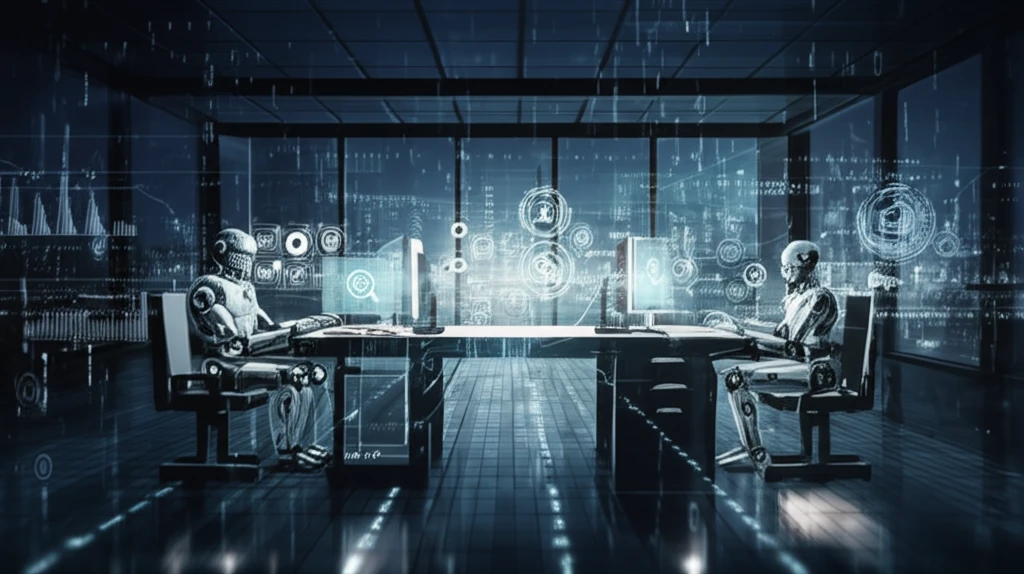
The Future of Work: How AI and Learning Agents Are Reshaping Contracts
"Discover how artificial intelligence and learning agents are revolutionizing traditional contract models, creating more dynamic and adaptable work environments."
The world of work is undergoing a seismic shift, driven by rapid advancements in artificial intelligence (AI) and machine learning. Traditional contract models, often static and inflexible, are struggling to keep pace with the dynamic nature of modern work environments. As businesses increasingly rely on AI-powered systems and intelligent agents, the need for more adaptive and responsive contractual agreements has become paramount.
Principal-agent theory, the cornerstone of traditional contract design, assumes that contracts should be formed between a principal, who delegates work, and an agent, who performs it. These relationships are evolving, requiring contracts to be dynamic, especially because no one wants to use complex dynamic strategies in practice, often preferring to circumvent complexity and approach uncertainty through learning.
New research is exploring the use of learning agents in contract design, focusing on agents who achieve no-regret outcomes. These agents, equipped with machine learning algorithms, can adapt their behavior based on past experiences, leading to more efficient and equitable agreements. This innovative approach promises to transform how contracts are structured, negotiated, and executed in the age of AI.
What Are Learning Agents and How Do They Impact Contracts?

Learning agents are a new class of AI-powered systems designed to adapt and optimize their behavior through continuous learning. Unlike traditional agents that follow pre-defined rules, learning agents use machine learning algorithms to analyze data, identify patterns, and adjust their strategies accordingly. This adaptability makes them particularly well-suited for dynamic and uncertain work environments.
- Adaptability: Learning agents can adjust their strategies based on past experiences, making them well-suited for dynamic work environments.
- Optimization: They can identify patterns and optimize their behavior to achieve desired outcomes.
- Collaboration: They can promote collaboration between principals and agents by aligning incentives and fostering trust.
Navigating the Future of Contracts with AI
The integration of AI and learning agents into contract design represents a significant step forward in creating more adaptable, efficient, and equitable work environments. As AI continues to evolve, we can expect to see even more sophisticated contract mechanisms that leverage the power of machine learning to optimize outcomes and foster collaboration. By embracing these advancements, businesses can unlock new levels of productivity, innovation, and success in the age of AI.
